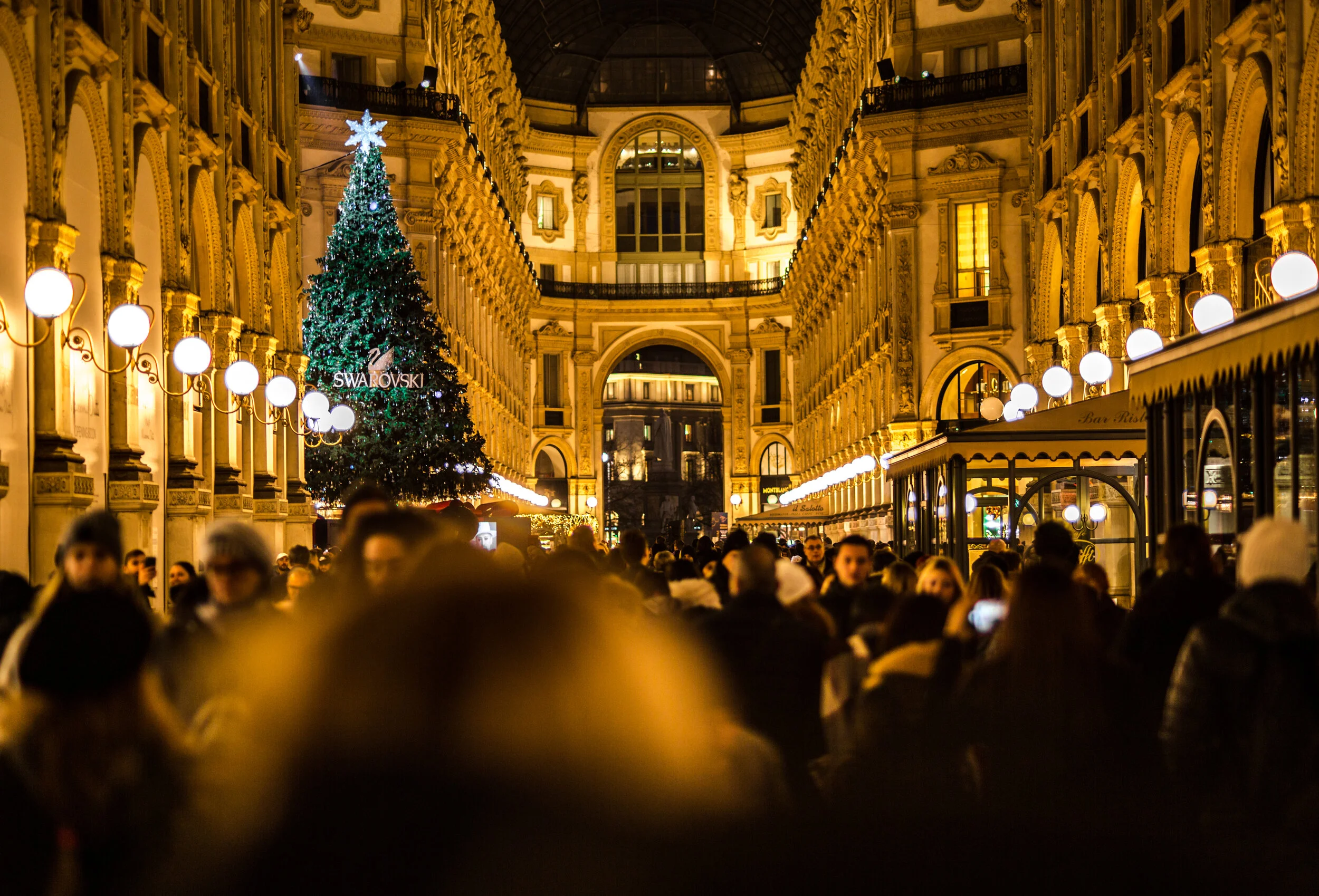5 Phrases You Need to Know If You’re Spending Time in Italy This Holiday Season
The holiday season is a hoot and a holler wherever you are, but if you’re lucky enough to find yourself in Italy from December to early January, get acquainted with the language of their favorite traditions.
By Brian Alcamo
Buone feste, ragazzi! The holiday season is a hoot and a holler wherever you are, but if you’re lucky enough to find yourself in Italy from December to early January, get acquainted with the language of their favorite traditions.
Panettone
Panettone is a sweet bread originally from Milan that can be embellished with fruit, nuts, or chocolate. It’s a super popular desert around the holidays. Since it’s a super popular desert, and since you’re in Italy, it’s also a super popular breakfast. All you have to do is dip it in your caffè (link to coffee article) while you say buongiorno.
La Vigilia di Natale
La Vigilia di Natale means Christmas Eve. Now, now, now. You might think I’m about to tell you about the wonders of a big Italian Christmas Eve dinner composed of exactly seven fish that each represent a Catholic sacrament. Unfortunately, this Christmas Eve “Feast of the Seven Fishes” is an Italian-American tradition. You’ll still find big Christmas Eve dinners all over the boot-shaped peninsula, but don’t expect to eat seven scrumptious swimmers plucked straight out of the Adriatic.
La Befana
La Befana is Italy’s answer to all this Santa Clause (babbo natale) nonsense. She’s a witch who rides her broomstick over Italy on January 5th, the night before the Epiphany, to dole out gifts to all the well-behaved bambini. It’s pretty chic that La Befana takes Christmas Eve off for herself, since every witch needs to spend some of the holiday season relaxing with friends and family.
Cioccolata Calda
If you don’t want to dip your panettone in an espresso, try una cioccolata calda, or hot chocolate. In Italy, hot chocolate is typically made with melted chocolate instead of powder, so you’re in for a real treat.
Il Capodanno
Capodanno is how you say New Year’s Day. It’s a compound word meaning “leader of the year,” since capo is the italian word for “leader,” and anno means “year.” Il Capodanno is lovely, but if you’re more of a festaiolo (party animal), you may be more interested in La Vigilia di Capodanno. It’s celebrated similarly to how it’s celebrated in the US, with bonfires and fuoco d’artificio (fireworks), and is a whole lot of fun. When you wake up on capodanno, be sure to remember to wish your friends and family a buon anno (Happy New Years).
If you’re flying to Italy this holiday season, make sure you bring all the regular items on your your linguistic checklist: your sure-fire indicativo, your ever-necessary bagno, and your most apologetic scusa. In addition, make sure you bring these couple words with you in your carry on. And, if all else fails, don’t be afraid to simply employ your best “Panettone, per favore?”
JP Linguistics Holiday Gift Guide 2018 - Our Favorite (Authentic) Gifts From Around The World
Looking for unique holiday gifts to share with your loved ones this year? Check out our gift guide filled with (authentic) products from in France, Italy, Spain & South America.
JP Linguistics Holiday Gift Guide 2018
Our Favorite (Authentic) Gifts From Around The World
The holidays are upon us and, this year, we wanted to round up a few of our favorite (authentic) foreign brands and share unique products with you, ideal for stocking stuffers and holiday gifts. Why did we create this guide? It’s because we know that sometimes around this time of year, gift-giving can feel like an obligation rather than a genuine act of kindness towards someone else. So, instead of picking up a random gift for someone just because, we wanted to introduce you to some (foreign) brands we love to make your gift giving more unique and thoughtful. What we look for in brands we love is authenticity and this guide has just that. We’ve included brands from France, Italy, Spain and South American (some of whom we know personally, but none of which we are being paid to advertise for) such as Le Slip Français, Mille Feuille Bakery, Asaro, Leone, Jolii Cosmetics, 1880, Ecoalf and more.
In addition, some of these brands have incredible philosophies that we are proud to support. For example, Ecoalf is a company from Spain that upcycles waste found in our oceans to create some of their products including shoes. Marianella Asto is an artisan from Peru who handcrafts alpaca wool gloves and sells them via her shop online with UNICEF. Asaro is a family-run organic olive farm based in Sicily that manually harvests their olives (making all of their products GMO and chemical free). Learn more about these brands by browsing through the entire guide which you can download below. The PDF includes links to each product for easy shopping. We hope you enjoy and, if you happened to buy any, let us know! We’d love to hear about your experience and if you love them just as much as we do.
Happy Holidays from all of us at JP Linguistics!








